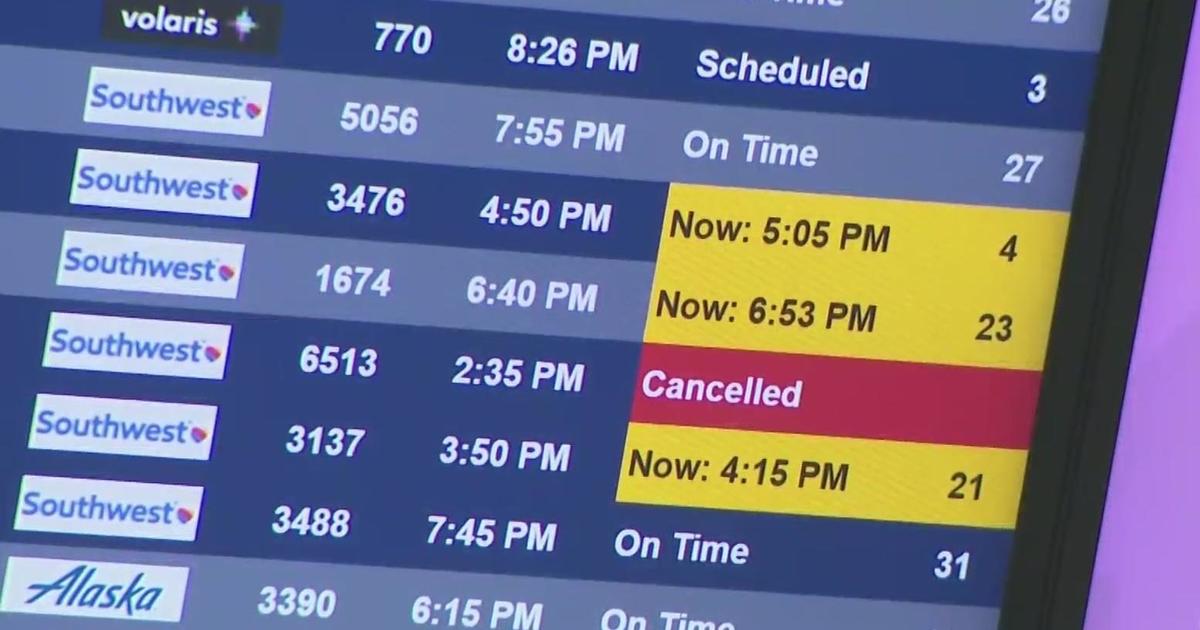HealthWatch: FDA Again Considers Bay Area Firm's Diet Pill
MOUNTAIN VIEW (CBS 5) -- A diet drug developed by a Bay Area company gets a second chance in front of the FDA.
On Wednesday, a panel of experts will meet to advise the Food and Drug Administration on whether it should approve Qnexa, the first new prescription diet pill in more than a decade.
In 2010, the FDA rejected this drug amid safety concerns. Mountain View-based Vivus developed the drug and has presented additional data on the drug to the FDA advisory committee. The committee will make a recommendation to the FDA, which has until April 17th to make a decision.
Even so, many in California are not waiting for the drug's approval. In the town of Los Osos near San Luis Obispo, thousands of patients flocked to a clinic where a doctor prescribes two different prescription drugs. When taken together, the medications helped some of them to lose a tremendous amount of weight.
"I've lost 165 pounds in one year," said Frazier Hartzell, a 20-year-old. At 6 feet 2 inches in height, at his heaviest, Hartzell tipped the scales at 390 pounds. The jeans the young man once wore are now nearly twice his size
Hartzell explained how this new treatment changed his life. "I'm happy and healthy and it worked," he said.
The two drugs are Phentermine, a stimulant, and Topiramate (Topamax), an anti-seizure medication often used to treat migraines.
Phentermine suppresses a patient's appetite, while Topiramate makes one feel full. When used together and combined with exercise and a very low calorie diet it can be a very effective tool.
"You do get a lot of bang for your buck," said weight loss specialist Dr. Philip Borgardt. He bought the Los Osos practice, and moved it to San Luis Obispo. The board-certified physician just opened up a second clinic in Walnut Creek.
Borgardt said when it comes to his obese patients' diet and exercise is not enough. The doctor said short of bariatric surgery, medications are the only answer.
"We need to take this weight issue seriously and we need to start treating patients who are overweight seriously and quit playing the blame game," said Borgardt.
Doctors can prescribe the two already approved drugs off label. When asked about Qnexa, Borgardt said, "One pill would be amazing."
"You could take it any time at night and keep it regular, and I think any one could follow that," he said.
But that concerns UCSF cardiologist Dr. Rita Redberg. She said FDA approval would increase its use.
"A lot more people would start taking this combination and we would be finding out a lot more about side effects," said Redberg.
Redberg said there are troubling potential side effects associated with the combination drug: from memory loss to birth defects as well as increased heart rate.
"Increased heart rate makes you wonder what is going on," Redberg said. "Is that going to lead to increased heart attacks?"
The other problem, according to Redberg, is that little is known about long-term use.
"It's really important to make sure that the benefits outweigh the risk and we need a lot more data before we can say that," said Dr. Redberg.
Hartzell did experience memory loss, but it went away when he stopped taking the medications.
He has been off the drugs since December.
"It worked great for me and I recommend it to anyone as long as they work with their doctor, go for it," said Hartzell.
(Copyright 2012 by CBS San Francisco. All Rights Reserved. This material may not be published, broadcast, rewritten, or redistributed.)



